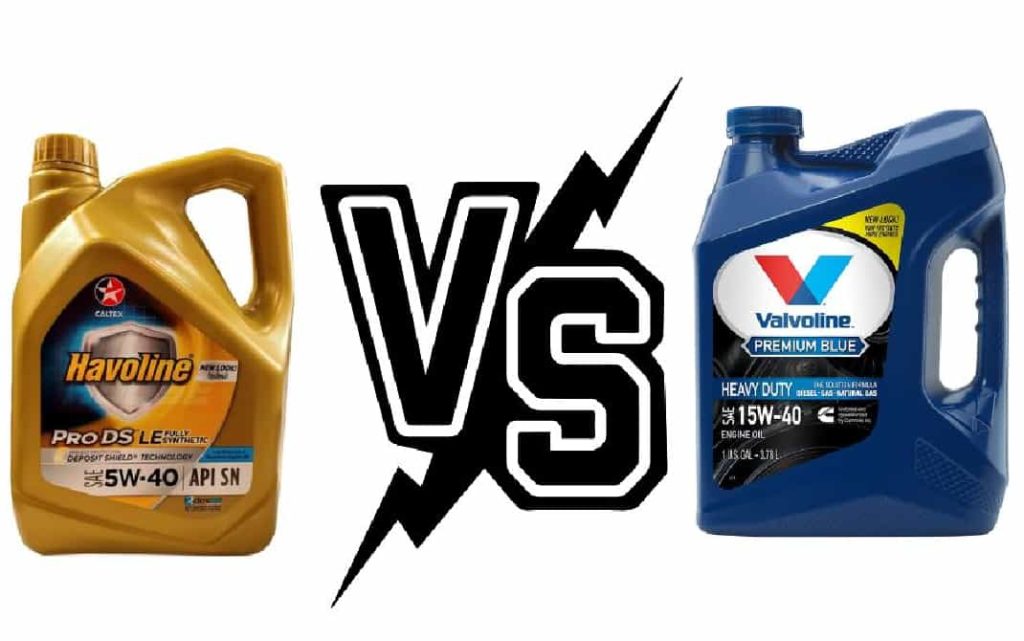If you are torn between two engine oil types, our 15w-40 vs 5w-40 comparison and analysis should help you out.
Your vehicle needs engine oil to keep its components properly lubricated. This not only ensures a smooth and efficient performance but it also prevents premature wear and tear caused by corrosion when you use poor quality engine oil.
Considering the many intricate parts that make up your vehicle, you need to use the right oil to prevent problems. This is why you may be wondering whether you should use the 15w-40 or the 5w-40 for your vehicle.
Check out our comparison of the two and find out the best choice for you.

15w-40 vs 5w-40: Pros And Cons
The right lubricant can make a huge difference in the performance and even the lifespan of your vehicle. With that being said, you may have come across the names 15w-40 and 5w-40 as these are some of the most popular engine oils in the market.
While the name may seem too similar, there are major differences between them. For example, if you need to use engine oil and the ambient temperature in the area where you are is between -20 celsius up to 40 celsius, then the 15w-40 is a better choice. But in a temperature that goes from -30 celsius to 40 celsius, we recommend the 5w-40.
Basically, the 5w-40 is an engine oil that is a multi-grade type. What this means is you can use it no matter what season it may be. It is a combination of petroleum and synthetic crude oil. When you are driving your vehicle in a warmer temperature, or you have a higher-mileage engine, the 5w-40 is ideal to use.
Additionally, the “5” written before the “w” stands for the oil thickness or viscosity when at a low temperature. What this means is that if you are using the vehicle in a warm environment and if you drive your vehicle regularly for 15000 miles a year, then it is the best engine oil to use.
There are many advantages you can expect from using the 5w-40. For instance, it is great for cleaning any impurities, it can cope with extreme conditions or a more aggressive driving style, and offers excellent heat resistance.
On the other hand, it costs a bit more than the 15w-40 and it is actually not advised by several manufacturers. You can also use this only in engines that are newer and not worn out.
As for the 15w-40, it is also a multi-grade oil that offers impeccable flow properties. You can use it whether in warm or cold weather. It can resist cold well, as long as it is not colder than -20 celsius.
This engine oil is an all-season type of lubricant. Whether you need to drive your car in cold or warm weather, it should be perfectly fine. Moreover, your worn engine can benefit from this engine oil as it prevents any corrosive activities while helping to clear away sludge.
Now, you may be wondering what’s good – and what’s bad – about the 15w-40. Here are just some of the benefits you can expect from it:
- Cheaper to manufacture
- Ideal for engines running in a warm climate
- Helps remove sludge
- Protects engines
But there are also some negatives to the 15w-40. For example, it is not great for extreme operating situations and those who drive their vehicles more aggressively. So, it is best to keep these things in mind before choosing this engine oil for your vehicle.
Important Points To Consider
As we have mentioned earlier, there are many differences that come with the 15w-40 and the 5w-40. These engine oils have unique properties and functions, which you need to consider before using just about either one of them.
When you need oil that is easier to lubricate faster and helps you to start the engine faster, then that would be the 5w-40 because it is not too thick. This is perfect when in a cold weather and you want your oil to pour faster and work more efficiently.
In fact, you can also count on the 5w-40 when you are a type of driver who tends to prefer a more aggressive style of driving. Yet, it is not the best choice when in a very cold temperature since it is only designated for up to -20 celsius. In this case, you should use the 15w-40 for best results in your particular situation.
Some people may also wonder if it is relatively safe to mix these engine oils. Although not all engine oils should be mixed, you will be pleased to know that the 15w-40 and the 5w-40 are perfectly okay to mix. But it is not advisable for all people since there are issues to keep in mind.
For example, depending on your warranty, mixing these lubricants may void your warranty. But if you no longer have any warranty for your vehicle, then you can go right ahead and mix these lubricants without any problem. There are risks to keep in mind, however, so it is good to know what to expect before you do it.
Read More: Fixaflat Vs Slime – Which One Should You Use?
Bottom Line
Both the 15w-40 and the 5w-40 are good quality engine oils that have gained popularity from many owners. They perform well in certain conditions, yet they have unique features that you should consider before using either one of them.
Additionally, there are unique benefits and drawbacks to these products, which you should always keep in mind to avoid problems with your vehicle. So, we highly recommend that you study the specifications of each product before resorting to using one over the other. This should help in determining the best solution for your unique needs that will not cause problems to your engine and other vehicle components.
We hope this helps in choosing between two products, so you can get the results you want.